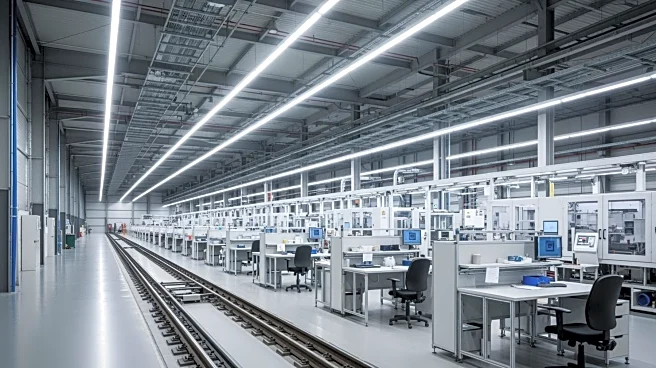What's Happening?
Alstom, a global leader in smart and sustainable mobility, has announced plans to hire approximately 120 new employees at its train manufacturing site in Plattsburgh, New York. This expansion is driven
by the need to produce 374 state-of-the-art commuter rail cars for NJ TRANSIT, one of Alstom's largest customers in North America. The company will host a job fair on November 6, inviting skilled workers in assembly, crane operations, welding, and industrial painting to apply for full-time positions that offer generous benefits, including health insurance, 401(k) contributions, and paid time off. Alstom's Plattsburgh plant has been a significant contributor to the local economy since 1995, producing thousands of rail cars for major transit systems across the United States.
Why It's Important?
The expansion of Alstom's workforce in Plattsburgh is a positive development for the local economy, providing new job opportunities and supporting the region's economic growth. By increasing its production capacity, Alstom is responding to the growing demand for commuter rail cars, which is crucial for improving public transportation infrastructure. This move not only benefits NJ TRANSIT but also strengthens Alstom's position in the North American market. The company's commitment to offering competitive pay and benefits reflects its dedication to attracting and retaining skilled workers, which is essential for maintaining high-quality production standards.
What's Next?
Alstom's job fair on November 6 will be a key event for recruiting new employees, with managers conducting interviews and potentially making conditional job offers on the spot. As the company ramps up production, it will likely continue to seek skilled workers to meet its manufacturing goals. The success of this expansion could lead to further growth opportunities for Alstom in the U.S. market, potentially resulting in additional job creation and economic benefits for the Plattsburgh region.
Beyond the Headlines
Alstom's expansion highlights the importance of sustainable mobility solutions in addressing transportation challenges. By investing in the production of commuter rail cars, the company is contributing to the development of environmentally friendly transit options that can reduce traffic congestion and lower carbon emissions. This aligns with broader efforts to promote sustainable urban development and improve the quality of life in cities across the U.S.










